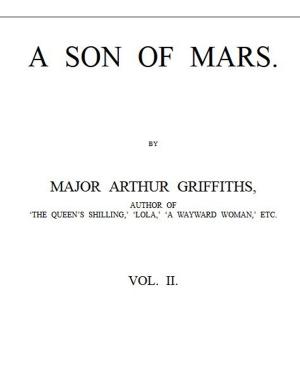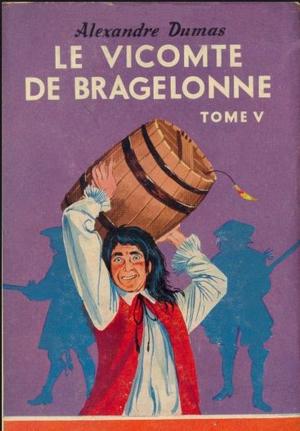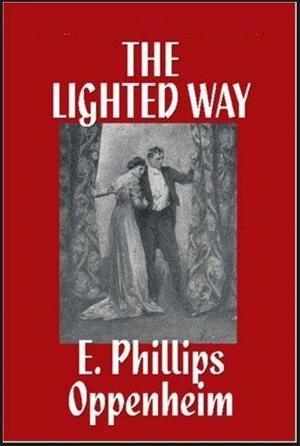| Author: | GEORGE MEREDITH | ISBN: | 1230002425955 |
| Publisher: | Jwarlal | Publication: | July 13, 2018 |
| Imprint: | Language: | English |
| Author: | GEORGE MEREDITH |
| ISBN: | 1230002425955 |
| Publisher: | Jwarlal |
| Publication: | July 13, 2018 |
| Imprint: | |
| Language: | English |
Others were not so easily won. Perry Wilkinson holds a balance when it goes beyond a question of her wit and beauty. Henry Wilmers puts the case aside, and takes her as he finds her. His cousin, the clever and cynical Dorset Wilmers, whose method of conveying his opinions without stating them was famous, repeats on two occasions when her name appears in his pages, 'handsome, lively, witty'; and the stressed repetition of calculated brevity while a fiery scandal was abroad concerning the lady, implies weighty substance—the reservation of a constable's truncheon, that could legally have knocked her character down to the pavement. We have not to ask what he judged. But Dorset Wilmers was a political opponent of the eminent Peer who yields the second name to the scandal, and politics in his day flushed the conceptions of men. His short references to 'that Warwick-Dannisburgh affair' are not verbally malicious. He gets wind of the terms of Lord Dannisburgh's will and testament, noting them without comment. The oddness of the instrument in one respect may have served his turn; we have no grounds for thinking him malignant. The death of his enemy closes his allusions to Mrs. Warwick. He was growing ancient, and gout narrowed the circle he whirled in. Had he known this 'handsome, lively, witty' apparition as a woman having political and social views of her own, he would not, one fancies, have been so stingless. Our England exposes a sorry figure in his Reminiscences. He struck heavily, round and about him, wherever he moved; he had by nature a tarnishing eye that cast discolouration. His unadorned harsh substantive statements, excluding the adjectives, give his Memoirs the appearance of a body of facts, attractive to the historic Muse, which has learnt to esteem those brawny sturdy giants marching club on shoulder, independent of henchman, in preference to your panoplied knights with their puffy squires, once her favourites, and wind-filling to her columns, ultimately found indigestible.
His exhibition of his enemy Lord Dannisburgh, is of the class of noble portraits we see swinging over inn-portals, grossly unlike in likeness. The possibility of the man's doing or saying this and that adumbrates the improbability: he had something of the character capable of it, too much good sense for the performance. We would think so, and still the shadow is round our thoughts. Lord Dannisburgh was a man of ministerial tact, official ability, Pagan morality; an excellent general manager, if no genius in statecraft. But he was careless of social opinion, unbuttoned, and a laugher. We know that he could be chivalrous toward women, notwithstanding the perplexities he brought on them, and this the Dorset- Diary does not show.
His chronicle is less mischievous as regards Mrs. Warwick than the paragraphs of Perry Wilkinson, a gossip presenting an image of perpetual chatter, like the waxen-faced street advertizements of light and easy dentistry. He has no belief, no disbelief; names the pro-party and the con; recites the case, and discreetly, over-discreetly; and pictures the trial, tells the list of witnesses, records the verdict: so the case went, and some thought one thing, some another thing: only it is reported for positive that a miniature of the incriminated lady was cleverly smuggled over to the jury, and juries sitting upon these eases, ever since their bedazzlement by Phryne, as you know . . . .
Others were not so easily won. Perry Wilkinson holds a balance when it goes beyond a question of her wit and beauty. Henry Wilmers puts the case aside, and takes her as he finds her. His cousin, the clever and cynical Dorset Wilmers, whose method of conveying his opinions without stating them was famous, repeats on two occasions when her name appears in his pages, 'handsome, lively, witty'; and the stressed repetition of calculated brevity while a fiery scandal was abroad concerning the lady, implies weighty substance—the reservation of a constable's truncheon, that could legally have knocked her character down to the pavement. We have not to ask what he judged. But Dorset Wilmers was a political opponent of the eminent Peer who yields the second name to the scandal, and politics in his day flushed the conceptions of men. His short references to 'that Warwick-Dannisburgh affair' are not verbally malicious. He gets wind of the terms of Lord Dannisburgh's will and testament, noting them without comment. The oddness of the instrument in one respect may have served his turn; we have no grounds for thinking him malignant. The death of his enemy closes his allusions to Mrs. Warwick. He was growing ancient, and gout narrowed the circle he whirled in. Had he known this 'handsome, lively, witty' apparition as a woman having political and social views of her own, he would not, one fancies, have been so stingless. Our England exposes a sorry figure in his Reminiscences. He struck heavily, round and about him, wherever he moved; he had by nature a tarnishing eye that cast discolouration. His unadorned harsh substantive statements, excluding the adjectives, give his Memoirs the appearance of a body of facts, attractive to the historic Muse, which has learnt to esteem those brawny sturdy giants marching club on shoulder, independent of henchman, in preference to your panoplied knights with their puffy squires, once her favourites, and wind-filling to her columns, ultimately found indigestible.
His exhibition of his enemy Lord Dannisburgh, is of the class of noble portraits we see swinging over inn-portals, grossly unlike in likeness. The possibility of the man's doing or saying this and that adumbrates the improbability: he had something of the character capable of it, too much good sense for the performance. We would think so, and still the shadow is round our thoughts. Lord Dannisburgh was a man of ministerial tact, official ability, Pagan morality; an excellent general manager, if no genius in statecraft. But he was careless of social opinion, unbuttoned, and a laugher. We know that he could be chivalrous toward women, notwithstanding the perplexities he brought on them, and this the Dorset- Diary does not show.
His chronicle is less mischievous as regards Mrs. Warwick than the paragraphs of Perry Wilkinson, a gossip presenting an image of perpetual chatter, like the waxen-faced street advertizements of light and easy dentistry. He has no belief, no disbelief; names the pro-party and the con; recites the case, and discreetly, over-discreetly; and pictures the trial, tells the list of witnesses, records the verdict: so the case went, and some thought one thing, some another thing: only it is reported for positive that a miniature of the incriminated lady was cleverly smuggled over to the jury, and juries sitting upon these eases, ever since their bedazzlement by Phryne, as you know . . . .















